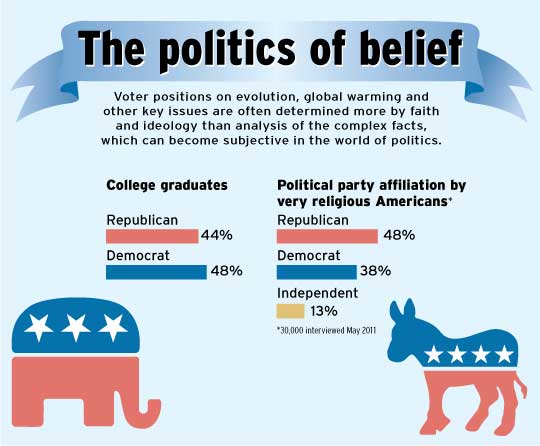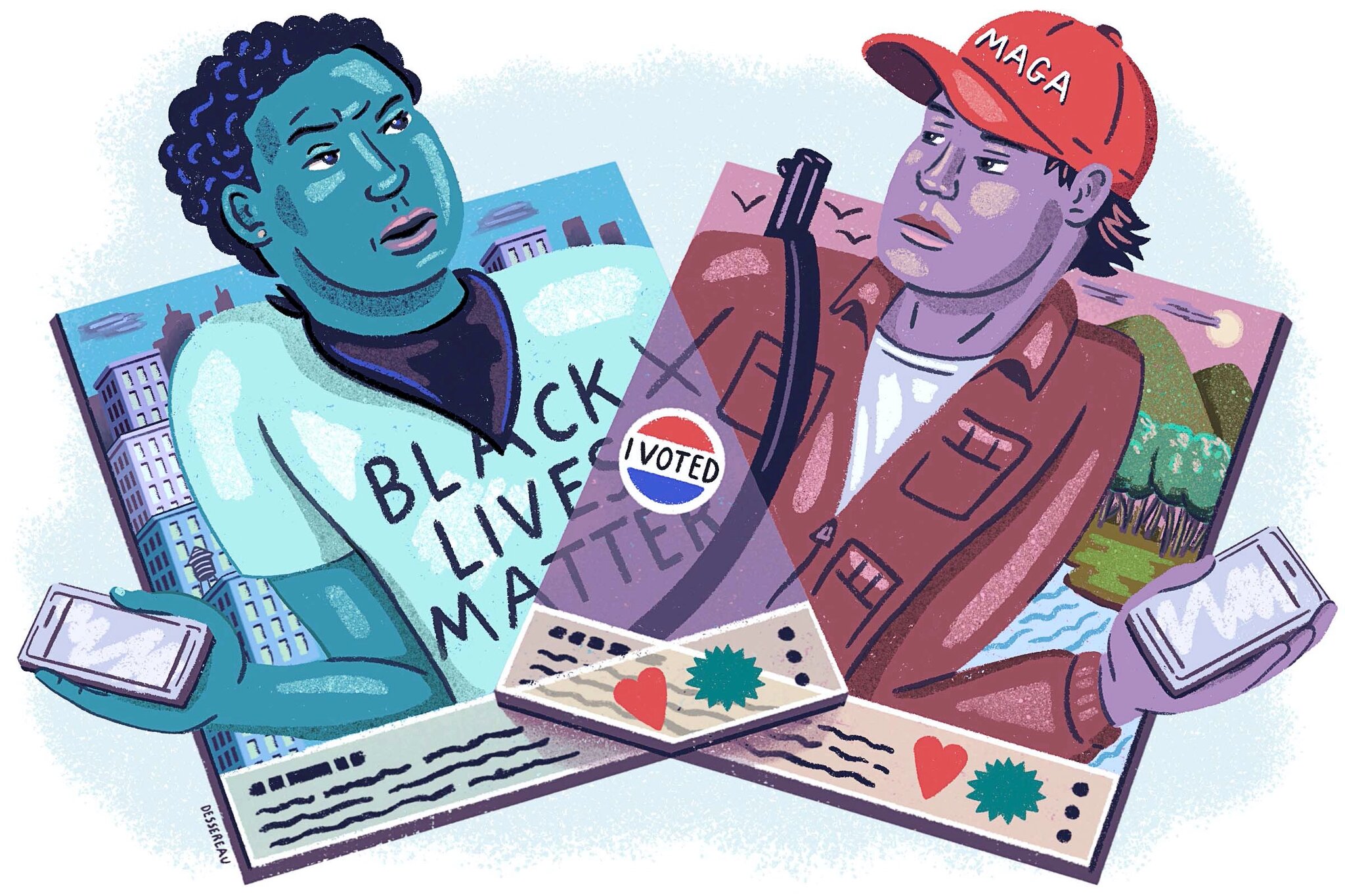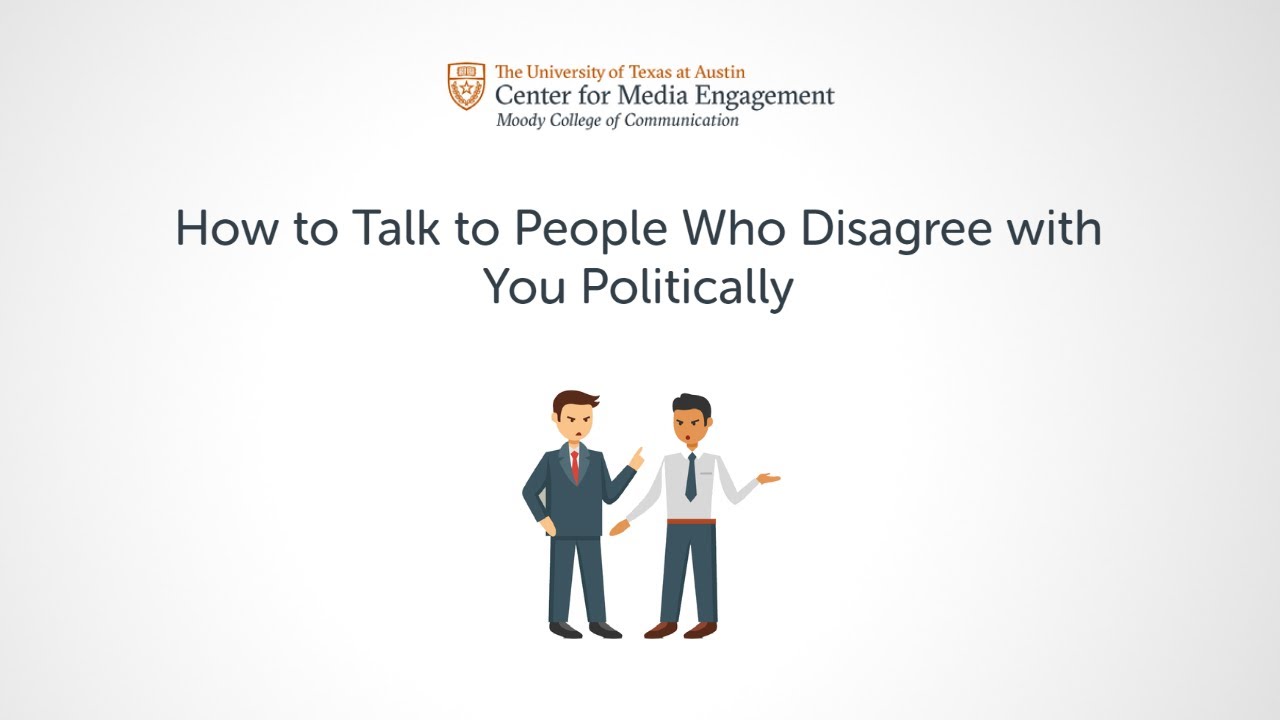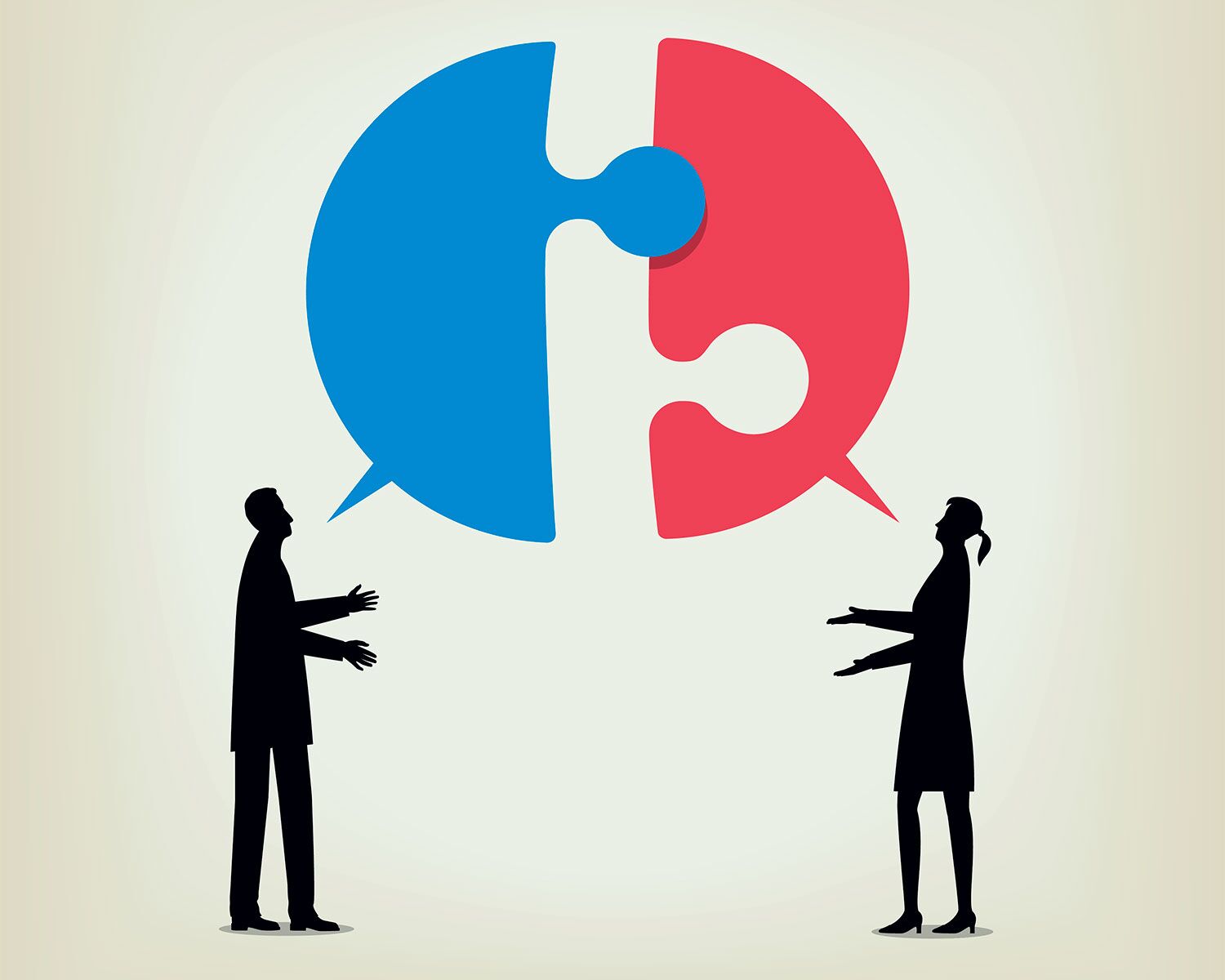
In a world where political beliefs often divide us, it can be challenging to navigate the differences with those who hold opposing viewpoints. Whether it’s around the dinner table, in the workplace, or within our social circles, conversations about politics can quickly become heated and contentious. However, finding common ground and fostering respectful dialogue is crucial if we hope to bridge the gaps and create a more harmonious society. This article explores strategies to navigate our differing political beliefs, encouraging empathy, understanding, and open-mindedness as we engage in meaningful discussions with those who think differently.

This image is property of static.scientificamerican.com.
Understanding Political Beliefs
Overview of political beliefs
Political beliefs are deeply ingrained ideologies or principles that encompass a range of opinions and perspectives on how societies should function. These beliefs often shape our attitudes towards social, economic, and political issues, influencing our voting choices and policy preferences. Political beliefs can span a broad spectrum, ranging from conservative to liberal and everything in between. Understanding the foundation of political beliefs is essential for fostering healthy and respectful discussions and debates.
Factors that shape political beliefs
Numerous factors shape our political beliefs, including our upbringing, education, experiences, and personal values. Family and social environment play a significant role in the formation of political beliefs, as individuals often adopt the viewpoints of those closest to them. Education also plays a crucial role, as it provides individuals with the knowledge and critical thinking skills necessary to develop their own political perspectives. Life experiences, such as social and economic conditions, can shape our beliefs as well. Additionally, personal values, such as empathy, personal freedom, and justice, greatly influence our ideological stances.
Political Discussion and Debate
Creating a safe and respectful environment
Creating a safe and respectful environment is paramount to engaging in productive political discussions and debates. It is important to approach conversations with an open mind and a willingness to consider different perspectives. Avoid judgment and criticism of others’ beliefs, as this can hinder open dialogue. Respect the diversity of opinions and ensure that everyone feels comfortable sharing their thoughts without fear of personal attacks or backlash. Creating a safe space allows for a fruitful exchange of ideas and fosters mutual understanding.
Active listening and effective communication
Active listening and effective communication are critical skills when engaging in political discussions. To actively listen, focus on understanding the other person’s viewpoint rather than formulating a response. Be attentive, maintain eye contact, and ask clarifying questions to ensure a clear comprehension of their perspective. Effective communication involves expressing your thoughts and ideas clearly and respectfully. Use non-confrontational language, avoid interrupting, and be mindful of your tone. By listening and communicating effectively, discussions can be more constructive and conducive to finding common ground.
Framing arguments and presenting evidence
In political debates, framing arguments and presenting evidence play pivotal roles in conveying your viewpoint. When framing an argument, start by clearly defining the issue and its relevance. Present factual information that supports your position while remaining objective and open to counterarguments. Back up your claims with credible sources and provide statistical data, expert opinions, or real-life examples whenever possible. By presenting evidence-based arguments, you can strengthen your position and engage in well-informed discussions.
Building Empathy and Understanding
Recognizing common goals and values
Building empathy and understanding begins with recognizing common goals and values. Despite political differences, most individuals share a desire for a better society, improved quality of life, and equal opportunities for all. Understanding that each person’s political beliefs are rooted in their own attempt to achieve these shared goals can foster empathy and bridge ideological gaps. By finding common ground, we can build relationships based on understanding and mutual respect, leading to more constructive political conversations.
Seeking out diverse perspectives
To expand our understanding of political beliefs, it is crucial to seek out diverse perspectives. Surrounding ourselves with a diverse range of individuals and engaging in conversations with people who hold different opinions can broaden our worldview and challenge our assumptions. Listen actively to people with contrasting viewpoints, as this can help bridge gaps in understanding and empathy. Embracing diversity of thought fosters inclusivity and promotes a more robust and nuanced understanding of political issues.
Developing cultural intelligence
Developing cultural intelligence is essential in building empathy and understanding across political beliefs. This involves recognizing and respecting the cultural backgrounds, experiences, and identities that shape individuals’ political perspectives. Cultural intelligence allows us to navigate political discussions with sensitivity and empathy, taking into account the societal and historical factors that influence diverse viewpoints. By developing cultural intelligence, we can engage in more meaningful and inclusive conversations that foster understanding and promote unity.
Finding Common Ground
Identifying shared interests
Finding common ground often begins with identifying shared interests. By focusing on common goals or values, such as economic prosperity, social justice, or environmental sustainability, we can find areas of agreement. Identifying shared interests allows us to transcend ideological differences and work towards practical solutions that benefit all parties involved. By shifting the focus from disagreements to areas of agreement, we can foster collaboration and build bridges between individuals with divergent political beliefs.
Working towards compromise and collaboration
Compromise and collaboration are key to finding common ground in political discussions. Instead of emphasizing winning or proving the superiority of one’s beliefs, strive for a mutually satisfactory solution that addresses the concerns of all parties involved. This may involve finding middle ground, prioritizing certain goals over others, or exploring innovative approaches. By focusing on cooperation and shared objectives, we can transcend the limitations of rigid political ideologies and work towards meaningful progress.

This image is property of static01.nyt.com.
Managing Conflicts and Disagreements
Resolving conflicts peacefully
Conflict is a natural part of political discussions, but it is essential to manage conflicts peacefully. When disagreements arise, focus on the issue at hand rather than engaging in personal attacks. Use constructive language, avoid inflammatory rhetoric, and remain calm and composed. Employ conflict resolution strategies such as active listening, finding common ground, and seeking compromise. By approaching conflicts with a peaceful mindset, we can defuse tension and maintain respectful dialogue.
Avoiding personal attacks and labeling
Personal attacks and labeling only serve to deepen divisions and hinder productive conversation. Avoid attacking individuals based on their political beliefs and refrain from resorting to ad hominem arguments. Instead, focus on addressing the issues and ideas at hand. Listen carefully to others’ perspectives, even if they differ from your own, and respond with respect and thoughtfulness. By avoiding personal attacks and labeling, we can maintain a healthy and respectful atmosphere for political discussions.
Engaging in Constructive Activism
Advocating for change
Engaging in constructive activism involves taking action to promote positive change based on your political beliefs. This can include participating in peaceful protests, supporting advocacy groups, or engaging in grassroots movements. By actively advocating for change, you can contribute to shaping public opinion and influencing policy decisions. However, it is important to conduct activism in a non-violent and respectful manner, adhering to the principles of democratic participation.
Working within the system
Working within the system is another approach to constructive activism that involves engaging with existing political structures, such as running for office, joining political campaigns, or supporting candidates who align with your beliefs. By actively participating in the political process, you can help shape policies and contribute to the democratic decision-making process. Balancing activism with strategic political involvement can yield impactful results and ensure that your voice is heard in a meaningful way.
Finding opportunities for collaboration
Collaboration with like-minded individuals and organizations is crucial in effective activism. Joining forces with others who share similar goals and beliefs can amplify your collective voice and increase the likelihood of achieving meaningful change. Seek out opportunities for collaboration, both within and beyond your political circle, to build coalitions and maximize impact. By working together, you can pool resources, ideas, and efforts to create a more significant impact on the issues that matter most to you.
This image is property of www.theknot.com.
Maintaining Relationships Despite Differences
Preserving friendships and family bonds
Differences in political beliefs can strain relationships, but it is possible to maintain strong connections with friends and family despite these divides. Focus on the commonalities and shared experiences that brought you together in the first place, emphasizing the bonds that go beyond politics. Seek understanding and empathy, recognizing that people can hold differing beliefs without compromising their core values. Respect each other’s autonomy and personal choices, and be willing to agree to disagree on certain topics. By nurturing the love and respect that underpin your relationships, you can weather political differences and maintain strong connections.
Establishing healthy boundaries
Establishing healthy boundaries is essential for maintaining relationships despite political differences. Acknowledge that it is okay to set limits on the extent to which you engage in political discussions and debates. Understand when it is appropriate to take a step back for the sake of preserving harmony and avoid subjecting relationships to constant ideological clashes. Communicate openly with your loved ones about your needs and boundaries, ensuring that a healthy balance is maintained between political discussions and other aspects of your relationship.
Respecting autonomy and personal choices
Respecting autonomy and personal choices is key to maintaining relationships, particularly when political beliefs diverge. Recognize that individuals have the agency to make their own decisions and that their political beliefs are a reflection of their personal values. Avoid imposing your beliefs on others and respect their right to hold contrasting opinions. Cultivating a culture of mutual respect and understanding allows relationships to thrive even when political differences exist.
Handling Political Differences in the Workplace
Maintaining a professional environment
Navigating political differences in the workplace necessitates creating and maintaining a professional environment. In a professional setting, it is important to focus on work-related tasks and priorities rather than engaging in divisive political debates. Avoid discussing sensitive political topics unless directly relevant to work. Emphasize common goals and values that unite coworkers and foster teamwork. By maintaining professionalism, you can ensure a harmonious work environment that allows for productivity and collaboration.
Respecting diversity and inclusion
Respecting diversity and inclusion is crucial when managing political differences in the workplace. Acknowledge and appreciate that coworkers come from diverse backgrounds and hold a range of political beliefs. Foster an inclusive culture that values and embraces diverse perspectives, creating an open space for people to express their opinions respectfully. Encourage dialogue and understanding by promoting an environment where different viewpoints are acknowledged and respected.
Separating personal and professional beliefs
Separating personal and professional beliefs is essential when navigating political differences in the workplace. Recognize that individuals have a right to their own political beliefs outside of the professional setting. Avoid imposing your own beliefs on coworkers and respect their autonomy and privacy. Focus on achieving work-related goals and collaborate based on shared professional objectives. By maintaining a clear distinction between personal and professional beliefs, you can create a conducive and harmonious work environment.

This image is property of i.ytimg.com.
Educating Ourselves and Others
Promoting political literacy
Promoting political literacy is essential for fostering healthy and informed discussions. It involves actively seeking knowledge and understanding of political systems, public policies, and historical contexts. Stay informed about current events, critically evaluate news sources, and engage with diverse perspectives. Encourage others to develop their own political literacy by sharing reliable resources and facilitating discussions that promote critical thinking and fact-checking. By promoting political literacy, we can build a more knowledgeable and engaged citizenry.
Engaging in civil discourse education
Engaging in civil discourse education is key to fostering respectful and constructive political discussions. Encourage the practice of civil discourse, which involves respectful dialogue, active listening, and the exchange of ideas without resorting to personal attacks or inflammatory language. Educate yourself and others on the principles and techniques of civil discourse, such as acknowledging biases, using evidence-based arguments, and finding common ground. By promoting civil discourse education, we can create a culture of respectful and effective communication.
Addressing misinformation and bias
Addressing misinformation and bias is crucial in today’s politically charged landscape. Be vigilant in verifying information before sharing it with others, checking multiple reliable sources to combat misinformation. Develop media literacy skills and help others become more discerning consumers of news. Encourage critical thinking and fact-checking to counter the spread of false information. By actively addressing misinformation and bias, we can contribute to a more informed and constructive political discourse.
Looking Towards the Future
Facilitating constructive political dialogues
Looking towards the future involves facilitating constructive political dialogues that bridge divides and foster understanding. Actively seek opportunities to engage in discussions with individuals who hold different political beliefs. Cultivate an environment where respectful and open-minded conversations can take place. Encourage the exploration of common ground and the search for innovative solutions to pressing issues. By facilitating constructive political dialogues, we can lay the foundation for a more unified and collaborative society.
Promoting democratic values
Promoting democratic values is essential for a thriving society. Embrace the principles of democracy, such as freedom of speech, fairness, equality, and active participation. Encourage civic engagement, advocate for the protection of democratic institutions, and participate in the democratic process through voting and involvement in community affairs. By promoting democratic values, we reinforce the importance of inclusive political discussions and the power of individuals to shape their collective future.
Encouraging civic participation
Encouraging civic participation is crucial for creating positive change. Support and engage in civic activities, such as volunteering, community organizing, and grassroots initiatives. Encourage others to become active participants in shaping their communities through political participation and social activism. By encouraging civic participation, we empower individuals to take ownership of their political beliefs and contribute to the well-being of society as a whole.
In conclusion, navigating political beliefs requires a thoughtful and compassionate approach. By seeking understanding, engaging in constructive discussions, and promoting mutual respect, we can foster an inclusive and empathetic society. With the strategies and principles outlined in this comprehensive article, individuals can navigate political differences effectively, maintain strong relationships, and work towards positive change in their communities and beyond.







